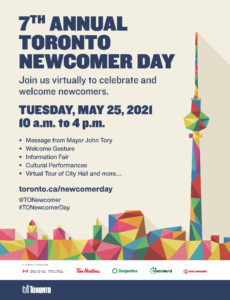Irene Vaksman, Director of Newcomer Services at JVS Toronto, chats with Josh Schachnow, a Canadian Immigration lawyer and founder of Visto.ai. Visto is a free platform that helps skilled workers and international students move to Canada as quickly as possible by uncovering the most popular applications and programs needed to move to Canada.
Irene talks about how she got into newcomer services in Canada, her tips and suggestions for those relocating to Canada, and how COVID-19 has changed all of the above!
If you’re interested in coming to Canada, start by signing up for Visto’s free immigration portal here. You’ll instantly get access to the Visto Portal that will get you started on the immigration process, and also give you the opportunity to join this community for even more benefits.
To learn more about Canada InfoNet, go to the link here:: https://www.canadainfonet.org/










